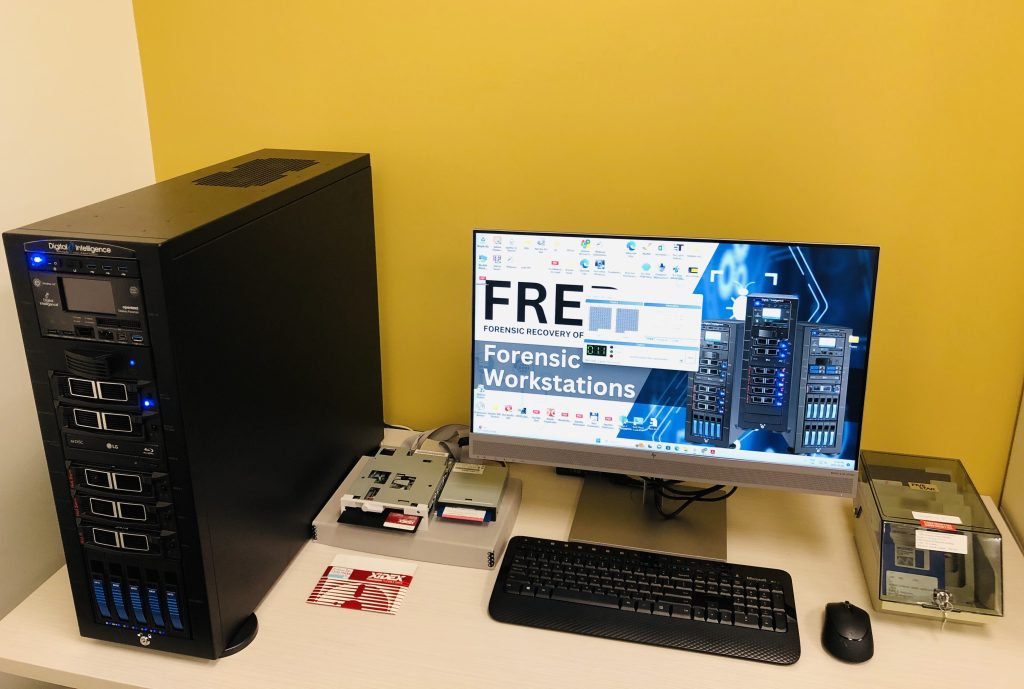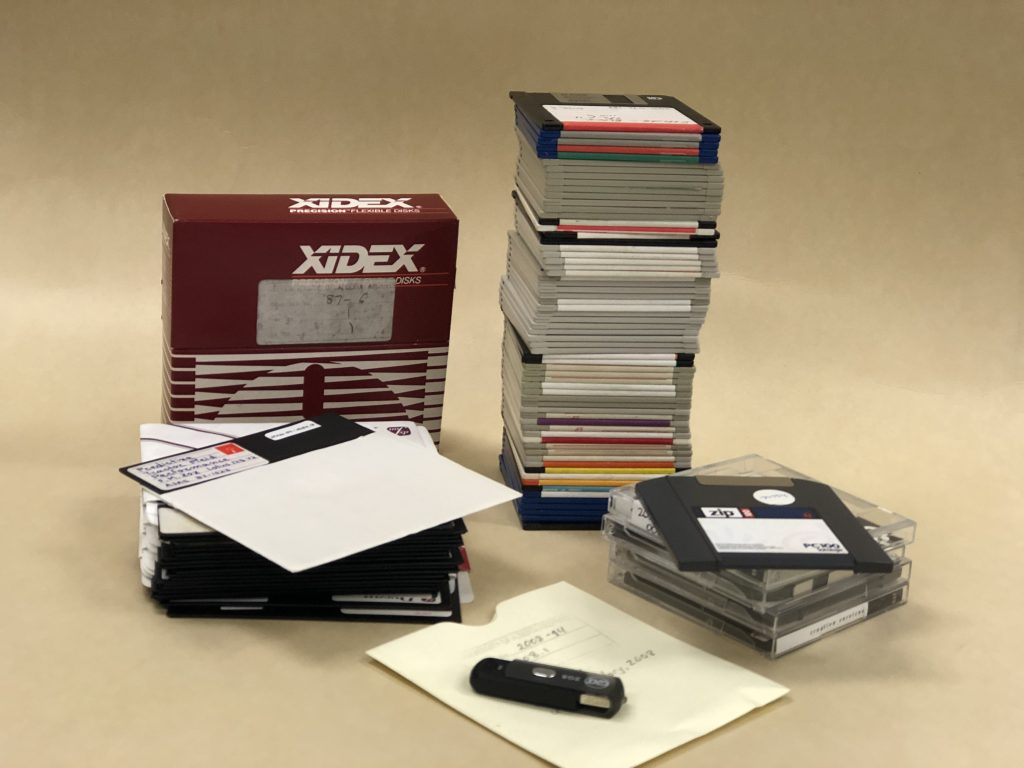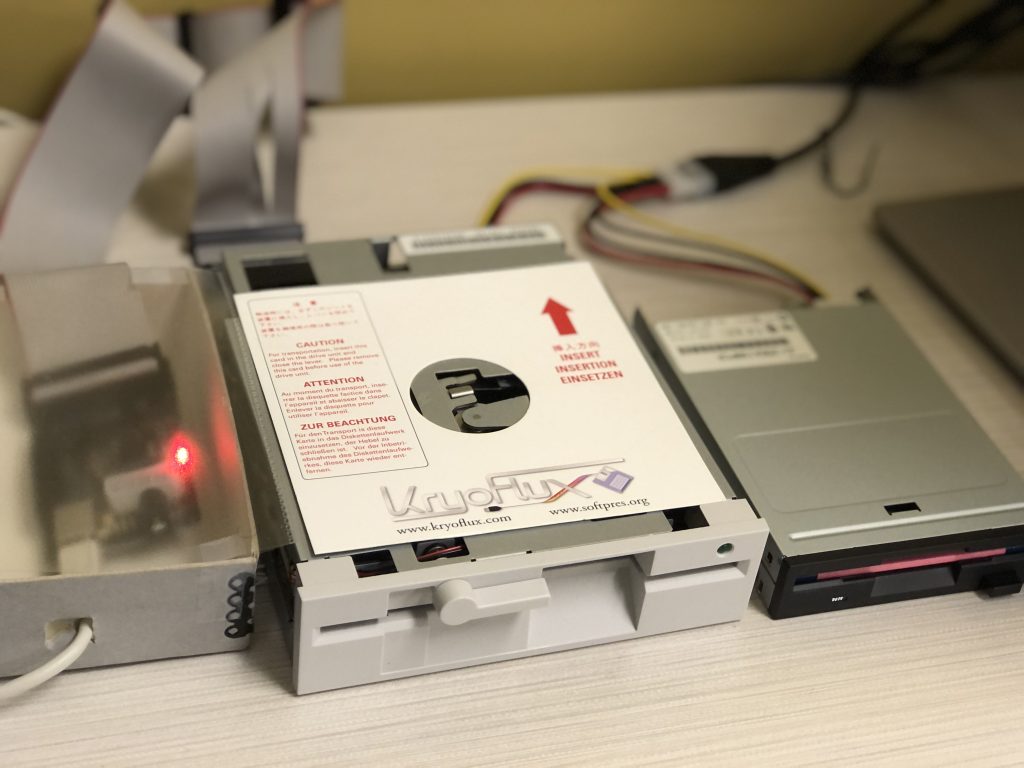Cet article de blog a été écrit par: Maryna Chernyavska
Le 2 novembre 2023, les Archives de l’Université de l’Alberta (UAA) célèbrent la Journée mondiale de la préservation numérique. Cette journée constitue une excellente occasion de parler de tout ce qui touche à la conservation numérique. À cette occasion, nous aimerions vous présenter de nouveaux “membres” de l’équipe de l’UAA – FRED et KryoFlux.

Découvrez FRET et KryoFlux

Le FRED (Forensic Recovery of Evidence Device) est utilisé pour la récupération de données numériques dans le cadre d’enquêtes criminelles. Il est également utilisé par les institutions d’archivage dans le cadre de leur “boîte à outils” de préservation numérique. Le FRED est un ordinateur puissant équipé d’une variété de logiciels permettant de transférer des fichiers numériques à partir de supports de stockage. Il dispose de plusieurs lecteurs de disques et de bloqueurs d’écriture, qui empêchent toute modification accidentelle du contenu et aident les archivistes à garantir l’authenticité des documents d’archives. Le FRED est également équipé de logiciels tels que Tableau Imager et Symantec Ghost. Ces logiciels permettent de créer des copies des copies complètes d’un disque en cours de traitement, c’est-à-dire des copies exactes de documents transférés par l’université ou donnés par des particuliers ou des organisations, en vue d’un traitement archivistique et d’activités de préservation ultérieures.

Les documents d’archives nés numériques, comprennent des fichiers textuels, des images, des fichiers audio et vidéo. Ils peuvent se trouver sur différents supports de stockage numérique : disques durs externes ou internes, clés USB, cartes SD, CD, mais aussi sur des lecteurs ZIP, des disquettes de 3,5 pouces, des disquettes de 5,25 pouces et bien d’autres encore. Les disquettes posent des problèmes particuliers, et nous en possédons quelques milliers. Populaires dans les années 1970 -1980, elles ont aujourd’hui 50 à 60 ans. Non seulement elles se démagnétisent avec le temps, mais les ordinateurs modernes n’ont pas de lecteurs de disquettes. C’est là qu’intervient une autre aide magique : KryoFlux.
KryoFlux est un matériel informatique créé par la Software Preservation Society qui permet aux archivistes de créer des images de disques au niveau du bit à partir de disquettes. Sans l’aide de KryoFlux, nous ne pourrions tout simplement pas récupérer les données de ces supports vieillissants.

Crédit photo : Mohsen Kardar
La conservation numérique et la collaboration
La préservation numérique est un travail de collaboration qui nécessite un effort collectif. Maryna Chernyavska, archiviste numérique de l’UAA, travaille avec Mohsen Kardar, assistant en préservation numérique, et les membres de l’équipe de la bibliothèque de l’Université de l’Alberta. Ensemble, ils veillent à ce que les documents conservés sur d’anciens supports électroniques puissent être récupérés et préservés. FRED et KryoFlux sont des ajouts bienvenus qui complètent les autres outils que nous utilisons pour la conservation numérique. Ils s’avéreront inestimables pour notre programme de préservation numérique et aideront les Archives de l’Université de l’Alberta à préserver et à rendre accessibles les documents de valeur permanente.
Cet article a été traduit par Elisabet Ingibergsson, l’original en anglais se trouve ici .
Ce contenu est placé sous une licence Creative Commons CC BY-NC-SA 4.0.
